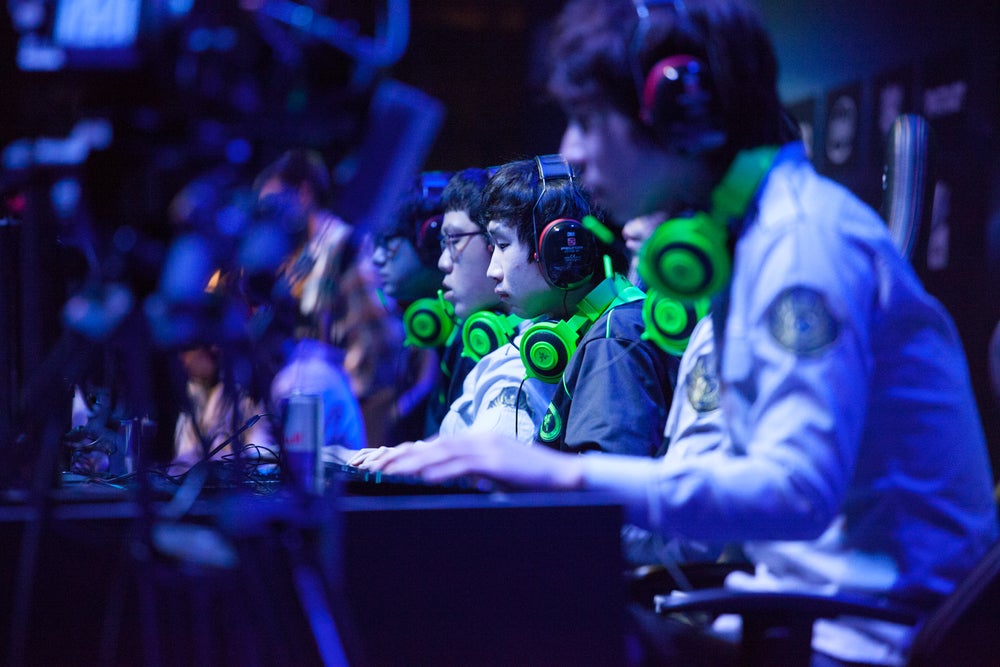The International Olympic Committee (IOC) announced in July 2024 the creation of the Olympic Esports Games, which will kick off in 2025.
Saudi Arabia has signed a seven-year deal with IOC to host the event.
This news demonstrates a shifting attitude towards gaming, which has long been pitted against traditional sports in the eyes of sports fanatics. It also highlights how lucrative esports is for countries that nurture esports as an important industry with high economic value.
The IOC hopes to tap into the growing global audience for esports
The main motive of the IOC in creating these games is to attract a wider, younger audience. Although esports currently caters to a niche audience, especially compared to mainstream sports, the global esports audience is estimated to be over 318 million in 2025, according to GlobalData.
In fact, esports is the fastest-growing theme in the gaming sector. Esports events sell out arenas all over the globe. Global brands are throwing their support behind the events, and the athletes themselves. NIKE, adidas, Champion, Louis Vuitton, and Gucci, to name a few, have been involved in esports since the beginning.
It is no wonder, then, that the IOC sees esports as a way of getting more eyeballs on their events and attracting the younger generation.
Will this new competition bridge the gap between esports and traditional sports?
Pre-pandemic, few people took esports seriously. Despite hundreds of millions of fans worldwide, it is still viewed as a niche interest compared to traditional sports, predominantly the vestige of teenage boys.
However, those who decry esports as requiring less skill than traditional sports have another think coming. Esports athletes train long hours and need strong reflexes and motor skills to master the highly tactical games in esports competitions (League of Legends being one of the more famous examples). An esports team needs strategy and communication skills to effectively compete against their rivals.
The tide is turning, most importantly at the government level. China, South Korea, Italy, and Denmark are among the countries that officially recognise esports as a sport. In supporting esports, these countries will host huge money-making events, helping to boost their profile as esports hubs.
As the future host of the Esports Olympic Games, Saudi Arabia is betting big on esports. The Saudi government has pledged $38bn (SR142.5bn) on gaming by 2030. The country hopes that by hosting this international tournament it can solidify its position as a competitive gaming hub, a technological powerhouse, and diversify its economy away from oil.
The creation of the Olympic Esports Games signals a new era of sporting events. It has shifted the goalpost on what people judge to be a sporting event, and what sporting talent is. No longer will parents lament endless hours of gaming. They might even encourage it in the hopes of having their child become a world-renowned esports athlete.








